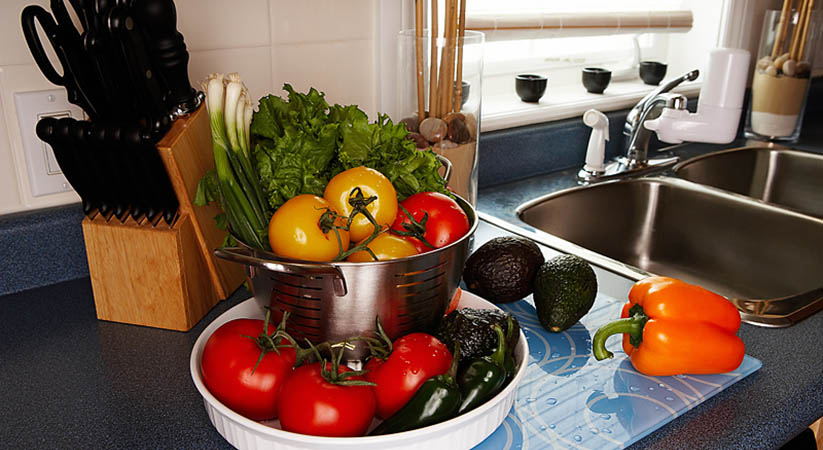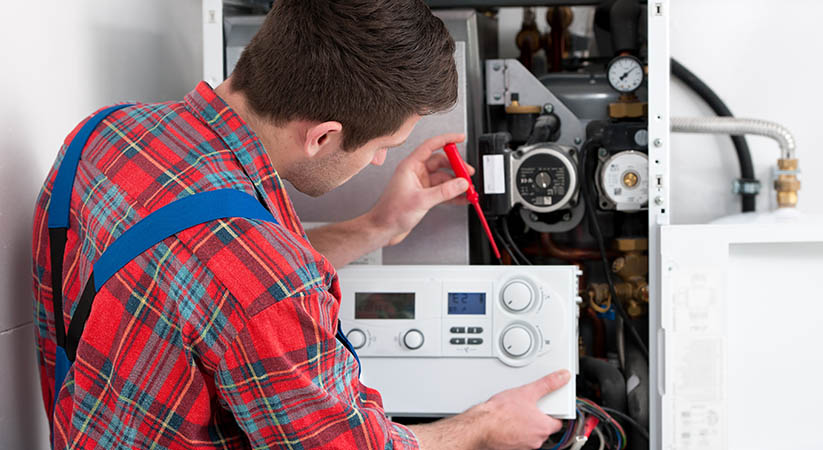Water filtration systems are a must, especially if the tap water needs some extra treatment before it can be potable, but these aren’t safe from myths and misconceptions either. Here are some very common misconceptions about water filtration systems.
Tap Water Is Safe For Drinking
A lot of people believe the notion that water supply companies and local municipalities take care of the water filtration and that the tap water coming into your house is safe and free from contaminants.
While that may be true in some cases, it’s still pretty normal for water to have impurities even after being treated on a large scale at filtration plants, which is why it’s necessary to have the water tested for contaminants, so that you can get a filter for it accordingly.
Tap water can be safe for drinking, but other times it might contain impurities that can lead to issues with digestion and the gut, in general. So, instead of harboring a stomach ache, make sure that you’re doing your due diligence.
If You Want “Safe” Water, Go For Bottled Water
Bottled and packaged doesn’t always mean safe, and that’s a fact. Yes, bottled water is highly treated and even enriched with minerals, but does it mean that it’s healthy? Not at all! Bottled water doesn’t contain impurities, but so can be the case with tap water and boiled water. There is no definitive black-and-white differentiation between different types of water.
Sometimes, tap water will meet all of the safety requirements, but other times, there will be lingering impurities in it, which is why you’ll need a suitable water filtration system to get rid of said impurities and make the water potable. Bottled water isn’t always available to everyone and it can also be expensive, especially if you’re using it daily, so it’s better to go for something sustainable in every sense.
All Water Filters Remove The Same Thing
Water filters vary greatly. They’re not the same in shape and functionality and they certainly don’t remove the same things either. As far as shapes are concerned, there are pitcher filters that look like a pitcher, normal cylindrical filters that are the most common, faucet filters that are attached to the taps and the list goes on.
As far as removal is concerned, some water filters are designed to remove sediments only, while some are equipped to remove impurities with activated charcoal. Moreover, UV light water filters and some others can remove unwanted minerals and metals from the water.
Boiling Is The Safest Water Filtration Method
Not exactly. While boiling water is quite effective in killing almost all types of bacteria, if the water is still murky and has a weird taste to it, then boiling isn’t going to cut it.
Boiling is a process that’s implemented when the primary purpose is to make the water free from all types of live organisms and bacteria because the high temperature is enough to kill those microscopic critters, but this doesn’t mean that the water will be crystal clear. If murkiness is an issue, then you might need a filtration system for your water too.
Water Softeners And Water Filters Are The Same
There is a huge difference between a water filter and a water softener system Meadville. If you didn’t know this already, a water filter removes all kinds of suspended and solid particles present in the water that can impart a weird taste, smell, and color to the water. Things like sediments, metal, and small but visible minerals in the water can be removed easily by a water filtration system.
Water softeners, on the other hand, only treat hard water, a.k.a. water with high concentrations of calcium and magnesium that can’t be removed physically. A water softener is more like a chemical treatment for water, whereas a water filtration system is a physical treatment option.
Water Smells & Tastes Weird – Filter It
Yes, taste and odor are two very important determining factors of water quality, but it’s wrong to assume that they’re the only things that need to be considered. A lot of the time, harmful toxins and heavy metals like radioactive uranium, lethal lead, and silent killer arsenic can be present in water and you might not even notice a blip of a difference in the taste or smell because these metals and impurities are colorless and odorless.
So, the best way to go about this issue is to ensure that you run a test on the water for all kinds of impurities. This will give you a very clear idea as to what’s actually in the water coming through the taps.
Filters Render The Water Useless
This is another misconception that can lead to people not using filters at all, because they think that water filtration systems can strip the water of its health benefits. That’s not true at all. A water filtration system is designed to remove contaminants from water and nothing else. The composition of water is pretty much the same, and not even the pH changes after it’s filtered, so don’t sweat it.
Filters Don’t Need To Be Changed
Filters are not meant to be set and forgotten about. Yes, they can last for a good amount of time, without any maintenance, but that doesn’t mean that you don’t ever have to change them in your life. A water filtration system will only work efficiently if you’re changing the filters out regularly.
Like a sieve or mesh, a water filter can also get gunk and debris stuck in it, which can compromise the performance of the filtration system. So, to ensure that your water is safe and filtered at all times, you need to make it a habit to change out the filters every couple of months depending on how murky and impure the water is.
Water Filtration Is Expensive
Water filtration systems can and cannot be expensive. They’re not something that is absolutely out of budget for people, but they’re not rock-bottom cheap either. A great thing about water filtration systems is that the prices vary throughout and there is something for everyone.
Independent filters can cost you way less, whereas a whole house water filtration system is an expensive investment, but if you need it, then you have to make some room in your budget because clean and safe water is the main priority, at the end of the day.
Water Filtration Systems Are High-Maintenance
This is also a misconception that can lead to people keeping water filtration systems at bay. A water filter can last anywhere between four to six months before it’s time to replace it and even if it is a complete water filtration system for the house, then an annual inspection is enough to keep things running smoothly.
To say that water filtration systems need a maintenance slave at all times is kind of stretching it. You can get away with minimal annual or bi-annual maintenance.
Conclusion
Water filtration systems, just like anything, can be over-examined under the microscope of misconceptions. Well, now you know what’s true and what’s not. If you want to install a whole house water filtration Erie system, have your tap water tested so the right system can be deployed.



